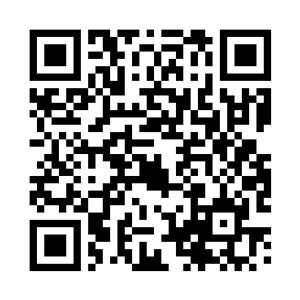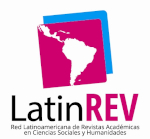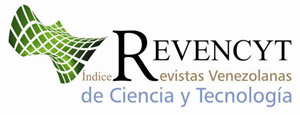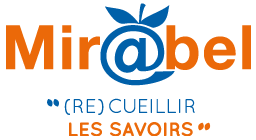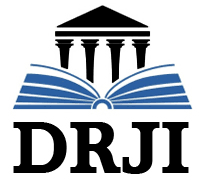Hermeneusis of conscious leadership in educational management
Keywords:
educational management, conscious leadership, competency-based training, mindfulness, compassionAbstract
This article aims to interpret the meanings of the values of conscious leadership in the educational management of the IPSIARTE Academic Unit in Santiago de Chile. International and national antecedents on educational leadership are explored and descriptors of Conscious Leadership, Educational Management and Training by Competencies are developed. A qualitative approach and a hermeneutic method are used, applying semi-structured interviews to four social actors. The results are validated through internal and external review by social actors and an evaluation committee. The study categories include Educational Management, Emotional Intelligence, Mindfulness, Compassion and Conscious Leadership. In conclusion, it was found that the organization implements a humanistic approach in educational management, influencing the organizational culture and the quality of teaching through tools such as mindfulness and emotional intelligence. Compassion is the foundation of conscious leadership, facing challenges in personality and dedication to training, with a positive impact in the educational context.
Downloads
References
Amabile, T. M. (1996). Creativity in context. Boulder, CO: Westview Press. https://doi.org/10.4324/9780429501234
Asociación Estadounidense de Psicología (2023). Work in America Survey. Workplaces as engines of psychological health and well-being. https://www.apa.org/pubs/reports/work-in-america/2023-workplace-health-well-being
Bar-On, R. (1997). The Emotional Quotient inventory (EQ-I): Techical Manual, Toronto, Canadá: Multi-Health Systems. https://www.scirp.org/(S(lz5mqp453edsnp55rrgjct55))/reference/ReferencesPapers.aspx?ReferenceID=2021693
Barrientos, O. (2019). Neuroliderazgo como estrategia gerencial para el desempeño laboral docente en instituciones de educación superior universitaria. Trabajo de grado presentado para optar al grado de magister. Universidad Yacambú. Cabudare. https://biblioteca.uny.edu.ve/Bonline/TG/TGM_MGE_1279.pdf
Bolívar, A. (2009). Liderazgo emocional. Editorial CCS.
Hougaard, R., Carter, C., y Chester, P. (2018). The Mind of the Leader: How to Lead Yourself, Your People, and Your Organization for Extraordinary Results.
Burmansah, B., Rugaiyah, R., & Mukhtar, M. (2020). A Mindful Leader: Mindfulness Strengthens the Leadership Ability of the Leaders in Higher Education Institute. AL-ISHLAH: Jurnal Pendidikan, 14(4), 6587-6602. http://journal.staihubbulwathan.id/index.php/alishlah/article/download/2734/1314
Burmansah, B., Rugaiyah, R., y Mukhtar, M. (2019). A Case Study of Mindful Leadership in an Ability to Develop Focus, Clarity, and Creativity of the Buddhist Higher Education Institute Leader. International Journal of Higher Education, 8(6), 57-69. https://files.eric.ed.gov/fulltext/EJ1230581.pdf
Chabolla, J. (2001). Un proyecto de docencia: Para las instituciones de Educación superior. (IES) en México. Editorial Plaza y Valdés. Impreso en México. https://www.google.cl/books/edition/Un_proyecto_de_docencia/IYdZtIwE87gC?hl=es&gbpv=1&dq=inauthor:%22J.+Manuel+Chabolla+Romero%22&printsec=frontcove
Daft, R. (2005). Leadership, Cengage Learning India, New Delhi, pp. 132–141.
Fernández, M. (2015). Liderazgo positivo y compartido. Padres y Maestros. Journal of Parents and Teachers, (361), 12-17. https://revistas.comillas.edu/index.php/padresymaestros/article/download/5336/5136
Fulton P. (2005). “Mindfulness as Clinical Training”, in Mindfulness and Psychotherapy edited by Germer, Siegel and Fulton, Guilford Press, New York, pp. 55–72. https://www.anagrama.co.il/wp-content/uploads/2020/03/Mindfulness_and_Psychotherapy.pdf
Gálvez, M. y Llatas, F. (2022). Liderazgo transformacional en la gestión educativa: una revisión literaria. Conrado, 18(85), 246-251. http://scielo.sld.cu/pdf/rc/v18n85/1990-8644-rc-18-85-246.pdf
Gardner, H. (1993). Multiples Intelligences. New York: BasicBooks, Traducción española en Ed. Paidós. https://www.academia.edu/5224535/Gardner_Howard_Teoria_De_Las_Inteligencias_Multiples
Germer C., Siegel R. y Fulton P. (2005). Mindfulness and Psychotherapy. Guilford Press, New York, pp. 3–27. https://www.anagrama.co.il/wp-content/uploads/2020/03/Mindfulness_and_Psychotherapy.pdf
Goleman, D. (1995). Emotional Intelligence: Why It Can Matter More Than IQ. Bantam Books.
Goleman, D. (1995). Emotional Intelligence: Why It Can Matter More Than IQ. New York: Bantam Books. https://www.penguinrandomhouse.com/books/68140/emotional-intelligence-by-daniel-goleman/
Goleman, D. (1995a). Emotional intelligence. New York: Bantam. https://books.google.cl/books/about/Emotional_Intelligence.html?id=XP5GAAAAMAAJ&rediresc=y
Goleman, D. (1998). Working with emotional intelligence. Nw York: Bantman. https://www.academia.edu/44384606/WORKINGWITHEMOTIONALINTELLIGENCE
Goleman, D. (2000). Working with emotional intelligence. New York, NY: Bantam Books. https://www.academia.edu/download/57210792/_Daniel_Goleman__Working_With_Emotional_Intelligenb-ok.xyz_1.pdf
Gómez, J., Galiana, D. y León, D. (2000). “Que debes saber para mejorar tu empleabilidad”. Elche: Universidad Miguel Hernández. https://observatorio.umh.es/files/2011/06/que-debes-saber-para-mejorar-tu-empleabilidad.pdf
Guédez, E. (2019). Liderazgo gerencial, una aproximación teórica humanista en la universidad Yacambú, desde la perspectiva de la complejidad. Tesis doctoral presentada a la Universidad Yacambú. Cabudare. https://biblioteca.uny.edu.ve/Bonline/TG/TD_PGE_493.pdf
Guinot, J., Miralles, S., Rodríguez, A., & Chiva, R. (2020). Do compassionate firms outperform? The role of organizational learning. Employee Relations, 42(3), 717-734. https://repositori.uji.es/xmlui/bitstream/handle/10234/187483/Guinot_2020_Do.pdf?sequence=1&isAllowed=y
Hanh, T. (1976). The miracle of mindfulness. Boston, Beacon Press.
Hougaard R., Carter J., y Chester L. (2018). Power Can Corrupt Leaders. Compassion Can Save Them. Harvard Business Review. https://hbr.org/2018/02/power-can-corrupt-leaders-compassion-can-save-them
Hougaard, R., Carter, J., & Chester, G. (2018a). Hougaard, R., & Carter, J. (2018). The mind of the leader: How to lead yourself, your people, and your organization for extraordinary results. Harvard Business Press. http://voicebucketvoitto.s3.amazonaws.com/pdf/ingles/%5BENG%5D%20The%20Mind%20of%20the%20Leader.pdf
Izquierdo, S., y Ugarte, G. (2023). Crisis educacional escolar pospandemia. Puntos de Referencia, 641. https://www.cepchile.cl/wp-content/uploads/2023/01/pder641_izquierdo_ugarte-1.pdf
Jagannathan, S. y Rodhain, F. (2016). What is Mindful Leadership? Sunita Singh Senghupta. Compendium on Integrating Spirituality & Organizational Leadership., 5, ISOL Publications, pp.94 - 100, 2016, The Power of Mind and Managerial Decision Making, 978-93-85355-04-2. hal-01954815 https://hal.science/hal-01954815/document
Kabat-Zinn, J. (2003). Mindfulness-Based Interventions in Context: Past, Present, and Future. Clinical Psychology: Science and Practice, 10(2), 144-156. https://doi.org/10.1093/clipsy.bpg016
Kanov, J., Maitlis, S., Worline, M., Dutton, J., Frost, P., & Lilius, J. (2004). Compassion in organizational life. American Behavioral Scientist, 47(6), 808-827. https://doi.org/10.1177/0002764203260211
Killingsworth, M. & Gilbert, D. (2010). A wandering mind is an unhappy mind. Science, 330(6006), 932-932. https://dtg.sites.fas.harvard.edu/KILLINGSWORTH%20&%20GILBERT%20%282010%29.pdf
Kofman, F. (2006). Conscious business: How to build value through values. Sounds True.
Kouzes, J. M., & Posner, B. Z. (2017). The Leadership Challenge: How to Make Extraordinary Things Happen in Organizations. Hoboken: Wiley. https://cjpl.org/wp-content/uploads/2023/11/cjplvolume2number4.pdf#page=24
Lange, S., Bormann, K. & Rowold, J. (2018). Mindful leadership: mindfulness as a new antecedent of destructive and transformational leadership behavior. Gruppe. Interaktion. Organisation. Zeitschrift Fur Angewandte Organisationspsychologie, 49(2). https://iranarze.ir/wp-content/uploads/2018/08/E9082-IranArze.pdf
Locke, E. A., & Latham, G. P. (2002). Building a practically useful theory of goal setting and task motivation: A 35-year odyssey. American Psychologist, 57(9), 705-717. https://doi.org/10.1037/0003-066X.57.9.705
Lugo, B. (2015). Visión Holística del Gerente como Líder Transformador en el Contexto Educativo. http://mriuc.bc.uc.edu.ve/bitstream/handle/123456789/914/blugo.pdf?sequence=5
Martínez, M. (2000). La investigación cualitativa etnográfica en educación. México: Trillas.
Martínez, M. (2008). Epistemología y metodología cualitativa en las ciencias sociales. México: Trillas.
Marturano, A. & Gosling, J. (Eds.). (2007). Leadership: The key concepts. Routledge. https://www.taylorfrancis.com/books/mono/10.4324/9780203099643/leadership-key-concepts-jonathan-gosling-antonio-marturano
Mayer, J. y Cobb, C. (2000). Educational policy on emotional intelligence: the case for ability scales. In R. Bar-On & J.D.A. Parker (Eds.), The handbook of emotional intelligence. San Francisco, Jossey Bass. https://www.researchgate.net/publication/226565202_Educational_Policy_on_Emotional_Intelligence_Does_It_Make_Sense
Men, L. R. (2015). The internal communication role of the chief executive officer: Communication channels, style, and effectiveness. Public Relations Review, 41(4), 461-471. https://doi.org/10.1016/j.pubrev.2015.06.021
Muraru, D. & Patrascu, E. (2017). Management models and school leadership. The Journal Contemporary Economy, 2(4), 125-130. http://www.revec.ro/images/images_site/categorii_articole/pdf_categorie_0ab7053a15063503229ade8a6b1bbd63.pdf#page=125
Neff, K. D., & Germer, C. K. (2013). A pilot study and randomized controlled trial of the mindful self-compassion program. Journal of Clinical Psychology, 69(1), 28-44. https://doi.org/10.1002/jclp.21923
Organización Mundial de la Salud (2022). La salud mental en el trabajo. https://www.who.int//news-room/fact-sheets/detail/mental-health-at-work/?gclid=Cj0KCQjwx5qoBhDyARIsAPbMagA0T-GVKG9iTtZkiRNUusbXbAArGomSN6iQJJxQ8FfBvU8Dq1FLXI0aAjQYEALw_wcB
Piñero, M. y Rivera, M. (2013). Investigación cualitativa: orientaciones procedimentales. Barquisimeto: ediciones de la UPEL.
Rupprecht, S., Falke, P., Kohls, N., Tamdjidi, C., Wittmann, M., & Kersemaekers, W. (2019). Mindful leader development: How leaders experience the effects of mindfulness training on leader capabilities. Frontiers in psychology, 10, 1081. https://www.frontiersin.org/articles/10.3389/fpsyg.2019.01081/pdf
Sanders, D. (2008). “Built to Serve: How to Drive the Bottom Line with People-First Practices”, McGraw Hill, NY. pp. 42–43.
Servicio Nacional de Capacitación y Empleo (2021). Contingencia Covid-19. https://sence.gob.cl/empresas/contingencia-covid-19
Singer, T., & Klimecki, O. M. (2014). Empathy and compassion. Current Biology, 24(18), R875-R878. https://doi.org/10.1016/j.cub.2014.06.054
Superintendencia de Seguridad Social (2023). Adelanto de cifras de Informe de Seguridad y Salud en el Trabajo. 67% de diagnósticos de enfermedades profesionales en Chile corresponden a salud mental. https://www.suseso.cl/605/w3-article-705997.html#:~:text=Seg%C3%BAn%20cifras%20de%20la%20Superintendencia,alcanz%C3%B3%20el%2052%25%20del%20total
U.S. Department of Health and Human Services. (2022). Workplace well-being. https://www.hhs.gov/surgeongeneral/priorities/workplace-well-being/index.html
Wells, C. (2015). Conceptualizing mindful leadership in schools: how the practice of mindfulness informs the practice of leading. Education Leadership Review of Doctoral Research, 2(1), 1-23. https://files.eric.ed.gov/fulltext/EJ1105711.pdf
Published
How to Cite
Issue
Section
License

This work is licensed under a Creative Commons Attribution-NonCommercial-ShareAlike 4.0 International License.





